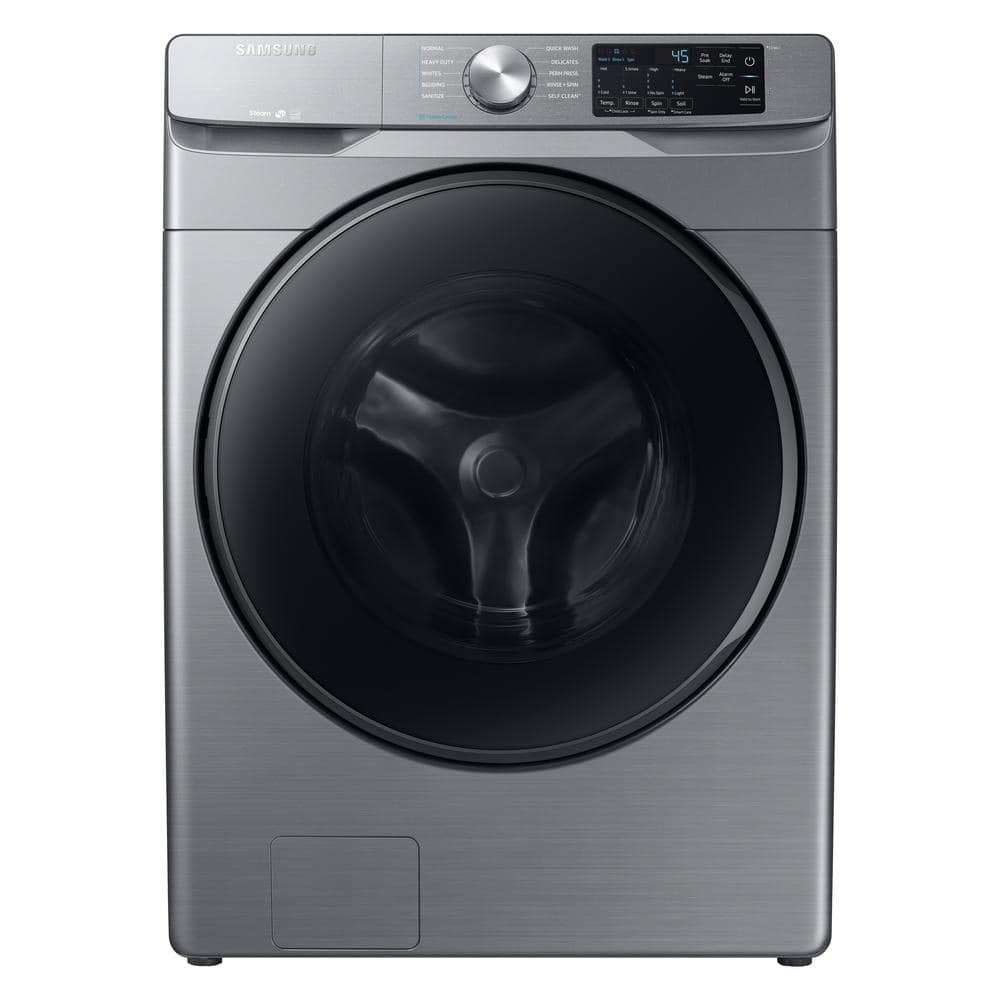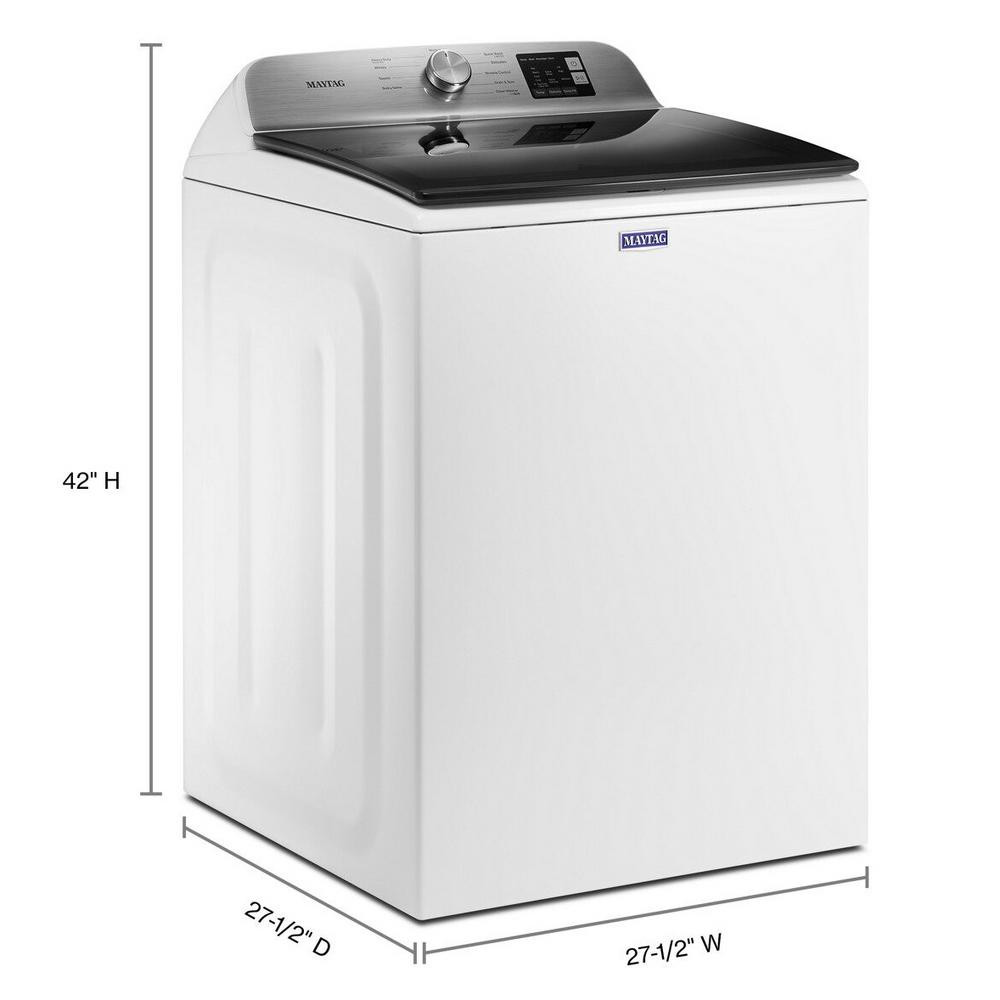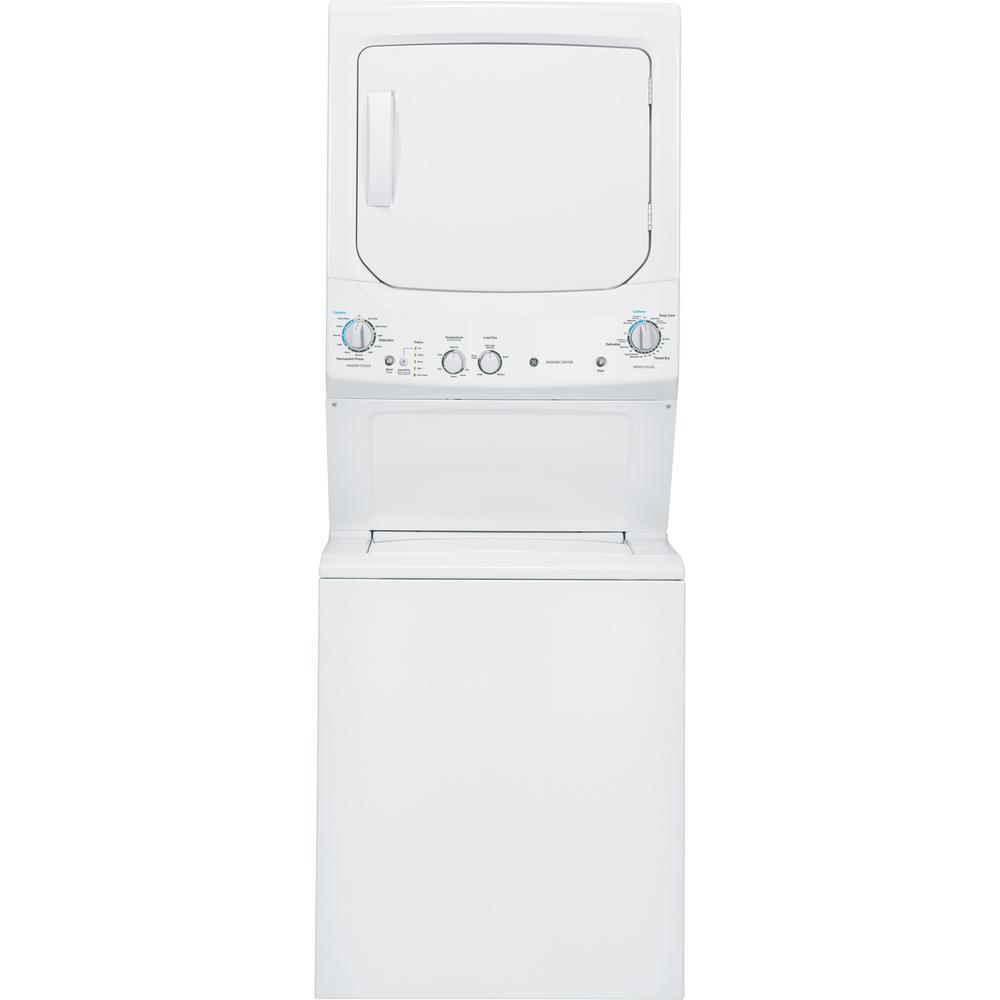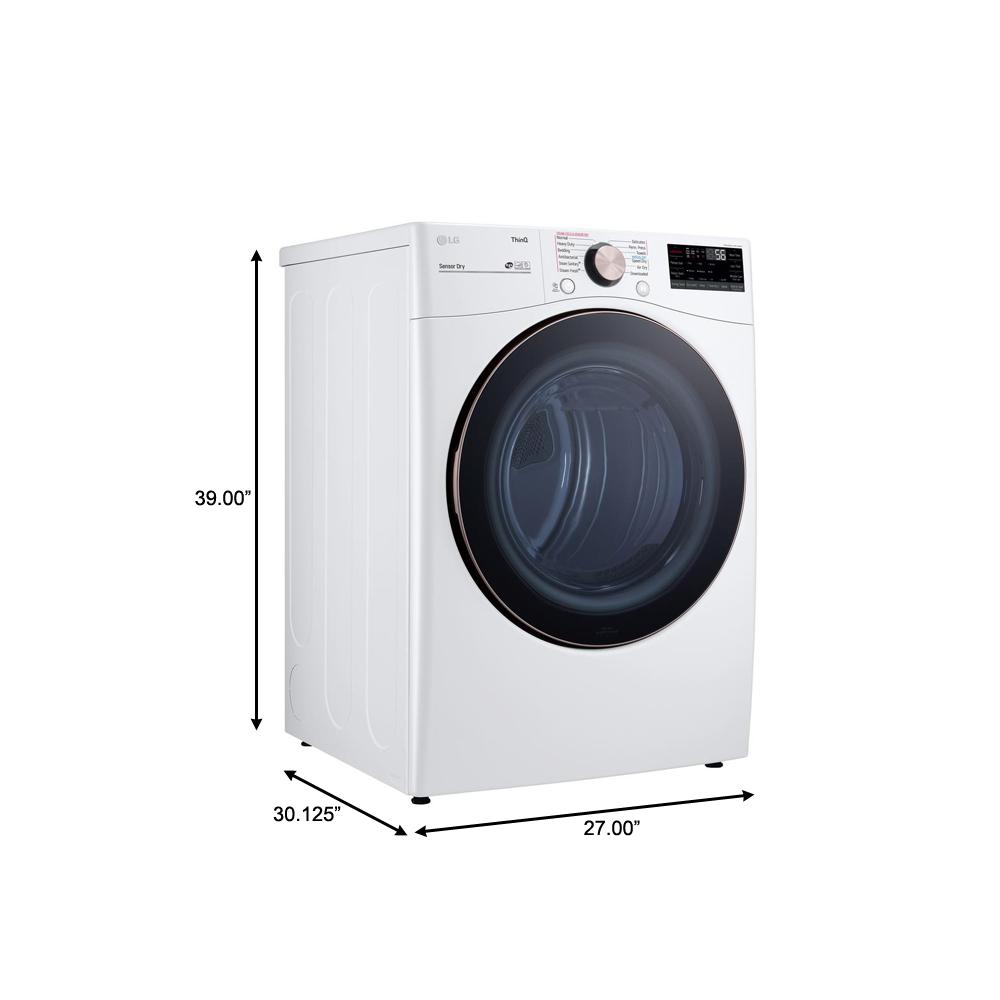Samsung 4.5 cu. ft. High-Efficiency Platinum Front Load Washing Machine with Steam, ENERGY STAR
Powerful stain removal without pretreatment. Keeps your washer drum fresh and clean. Easy troubleshooting from the convenience of your smartphone.
The Samsung 4.5 cu. ft. capacity front load washer with steam eliminates stains without the need to pretreat. Self Clean+ keeps your washer drum fresh and clean, while Smart Care allows for easy troubleshooting from the convenience of your smartphone. Bring inspiration to your laundry room with the beautiful platinum finish.
- Steam provides powerful stain removal without pretreatment
- Self Clean+ keeps your washer drum fresh and clean
- Smart Care allows easy troubleshooting from the convenience of your smartphone
- VRT Plus Technology reduces noise and vibration for quiet washing
- Swirl+Drum Interior improves drum pattern extracts more water more quickly
- Closet Depth Fit3 provides space-saving design, great for flexible installation in any laundry space
- Accessibility (ADA Compliant4, AUI, Braille) certified which are designed for easy use for everyone
- 10 Preset Washing Cycles to best suit your washing needs
- 7 Additional Washing Options to enhance your washing cycle, providing optimal care for all fabric types
- ENERGY STAR Certified for eco-friendly and energy-efficient use
- 5 Temperature Levels for the ideal temperature to wash your clothes gently and thoroughly
- The matching dryers are DVG45R6100P (gas) and DVE45R6100P (electric)
- Matching pedestal is WE402NP
Additional information
| Capacity - Washer (cu. ft.) | 4.5 |
|---|---|
| Depth With Door Open 90 Degrees (In) | 54.6 |
| Door Opening Height (In.) | 11.75 |
| Door Opening Width (In.) | 22 |
| Product Depth x Height x Width (in.) | 31.4 x 38.75 x 27 |
| Certifications and Listings | ADA Compliant,Energy Star,UL Listed |
| Manufacturer Warranty | One (1) Year Parts and Labor. Three (3) Years Stainless Steel Drum (Part Only). Ten (10) Years Direct Drive Motor (Part Only) |
4 (four) is a number, numeral and digit. It is the natural number following 3 and preceding 5.
4 is the smallest square number > 1, the smallest semiprime and composite number, and the 3rd highly composite number.
The number 4 is considered unlucky in many East Asian cultures.
5 (five) is a number, numeral and digit. It is the natural number, and cardinal number, following 4 and preceding 6, and is a prime number.
Humans, and many other animals, have 5 digits on their limbs.
Efficiency is the often measurable ability to avoid making mistakes or wasting materials, energy, efforts, money, and time while performing a task. In a more general sense, it is the ability to do things well, successfully, and without waste.
In more mathematical or scientific terms, it signifies the level of performance that uses the least amount of inputs to achieve the highest amount of output. It often specifically comprises the capability of a specific application of effort to produce a specific outcome with a minimum amount or quantity of waste, expense, or unnecessary effort. Efficiency refers to very different inputs and outputs in different fields and industries. In 2019, the European Commission said: "Resource efficiency means using the Earth's limited resources in a sustainable manner while minimising impacts on the environment. It allows us to create more with less and to deliver greater value with less input."
Writer Deborah Stone notes that efficiency is "not a goal in itself. It is not something we want for its own sake, but rather because it helps us attain more of the things we value."
A machine is a physical system that uses power to apply forces and control movement to perform an action. The term is commonly applied to artificial devices, such as those employing engines or motors, but also to natural biological macromolecules, such as molecular machines. Machines can be driven by animals and people, by natural forces such as wind and water, and by chemical, thermal, or electrical power, and include a system of mechanisms that shape the actuator input to achieve a specific application of output forces and movement. They can also include computers and sensors that monitor performance and plan movement, often called mechanical systems.
Renaissance natural philosophers identified six simple machines which were the elementary devices that put a load into motion, and calculated the ratio of output force to input force, known today as mechanical advantage.
Modern machines are complex systems that consist of structural elements, mechanisms and control components and include interfaces for convenient use. Examples include: a wide range of vehicles, such as trains, automobiles, boats and airplanes; appliances in the home and office, including computers, building air handling and water handling systems; as well as farm machinery, machine tools and factory automation systems and robots.
Platinum is a chemical element; it has symbol Pt and atomic number 78. It is a dense, malleable, ductile, highly unreactive, precious, silverish-white transition metal. Its name originates from Spanish platina, a diminutive of plata "silver".
Platinum is a member of the platinum group of elements and group 10 of the periodic table of elements. It has six naturally occurring isotopes. It is one of the rarer elements in Earth's crust, with an average abundance of approximately 5 μg/kg. It occurs in some nickel and copper ores along with some native deposits, mostly in South Africa, which accounts for ~80% of the world production. Because of its scarcity in Earth's crust, only a few hundred tonnes are produced annually, and given its important uses, it is highly valuable and is a major precious metal commodity.
Platinum is one of the least reactive metals. It has remarkable resistance to corrosion, even at high temperatures, and is therefore considered a noble metal. Consequently, platinum is often found chemically uncombined as native platinum. Because it occurs naturally in the alluvial sands of various rivers, it was first used by pre-Columbian South American natives to produce artifacts. It was referenced in European writings as early as the 16th century, but it was not until Antonio de Ulloa published a report on a new metal of Colombian origin in 1748 that it began to be investigated by scientists.
Platinum is used in catalytic converters, laboratory equipment, electrical contacts and electrodes, platinum resistance thermometers, dentistry equipment, and jewelry. Platinum is used in the glass industry to manipulate molten glass, which does not "wet" platinum. As a heavy metal, it leads to health problems upon exposure to its salts; but due to its corrosion resistance, metallic platinum has not been linked to adverse health effects. Compounds containing platinum, such as cisplatin, oxaliplatin and carboplatin, are applied in chemotherapy against certain types of cancer.
Samsung Group (Korean: 삼성; Hanja: 三星; RR: samseong [samsʌŋ]; stylised as SΛMSUNG) is a South Korean multinational manufacturing conglomerate headquartered in Samsung Digital City, Suwon, South Korea. It comprises numerous affiliated businesses, most of them united under the Samsung brand, and is the largest South Korean chaebol (business conglomerate). As of 2024, Samsung has the world's fifth-highest brand value.
Samsung was founded by Lee Byung-chul in 1938 as a trading company. Over the next three decades, the group diversified into areas including food processing, textiles, insurance, securities, and retail. Samsung entered the electronics industry in the late 1960s and the construction and shipbuilding industries in the mid-1970s; these areas would drive its subsequent growth. Following Lee's death in 1987, Samsung was separated into five business groups – Samsung Group, Shinsegae Group, CJ Group, Hansol Group, and JoongAng Group.
Samsung industrial affiliates include Samsung Electronics, Samsung Heavy Industries, Samsung Engineering and Samsung C&T Corporation. Other subsidiaries include Samsung Life Insurance and Cheil Worldwide. Notable Samsung industrial affiliates include Samsung Electronics (the world's largest information technology company, consumer electronics maker and chipmaker measured by 2017 revenues), Samsung Heavy Industries (the world's second largest shipbuilder measured by 2010 revenues), and Samsung Engineering and Samsung C&T Corporation (respectively the world's 13th and 36th largest construction companies). Other notable subsidiaries include Samsung Life Insurance (the world's 14th largest life insurance company), Samsung Everland (operator of Everland Resort, the oldest theme park in South Korea) and Cheil Worldwide (the world's 15th largest advertising agency, as measured by 2012 revenues).
Steam is water vapour (water in the gas phase), often mixed with air and/or an aerosol of liquid water droplets. This may occur due to evaporation or due to boiling, where heat is applied until water reaches the enthalpy of vaporization. Steam that is saturated or superheated (water vapor) is invisible; however, wet steam, a visible mist or aerosol of water droplets, is often referred to as "steam".: 6
When liquid water becomes steam, it increases in volume by 1,700 times at standard temperature and pressure; this change in volume can be converted into mechanical work by steam engines such as reciprocating piston type engines and steam turbines, which are a sub-group of steam engines. Piston type steam engines played a central role in the Industrial Revolution and modern steam turbines are used to generate more than 80 % of the world's electricity. If liquid water comes in contact with a very hot surface or depressurizes quickly below its vapour pressure, it can create a steam explosion.
Washing is a method of cleaning, usually with water and soap or detergent. Regularly washing and then rinsing both body and clothing is an essential part of good hygiene and health.
Often people use soaps and detergents to assist in the emulsification of oils and dirt particles so they can be washed away. The soap can be applied directly, or with the aid of a washcloth or assisted with sponges or similar cleaning tools.
In social contexts, washing refers to the act of bathing, or washing different parts of the body, such as hands, hair, or faces. Excessive washing may damage the hair, causing dandruff, or cause rough skin/skin lesions. Some washing of the body is done ritually in religions like Christianity and Judiasm, as an act of purification.
Washing can also refer to washing objects. For example, washing of clothing or other cloth items, like bedsheets, or washing dishes or cookwear. Keeping objects clean, especially if they interact with food or the skin, can help with sanitation. Other kinds of washing focus on maintaining cleanliness and durability of objects that get dirty, such washing one's car, by lathering the exterior with car soap, or washing tools used in a dirty process.
With or WITH may refer to:
- With, a preposition in English
- Carl Johannes With (1877–1923), Danish doctor and arachnologist
- With (character), a character in D. N. Angel
- With (novel), a novel by Donald Harrington
- With (album), a 2014 album by TVXQ
- With (EP), a 2021 EP by Nam Woo-hyun






by Mike
Loving my washer so far!